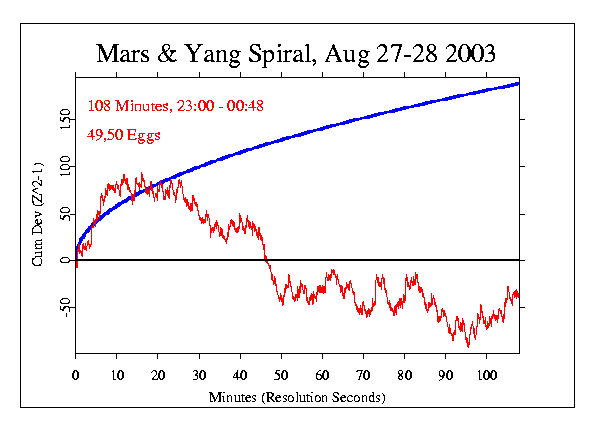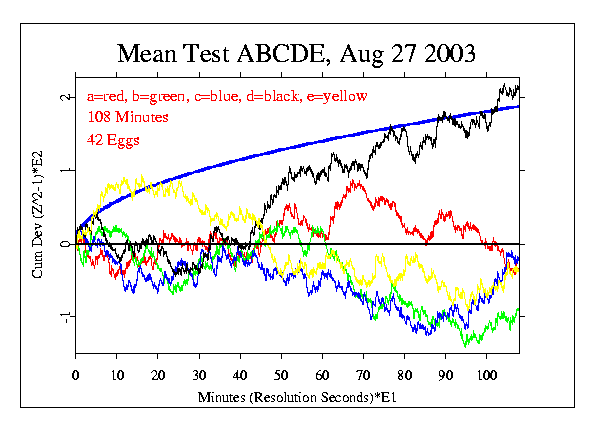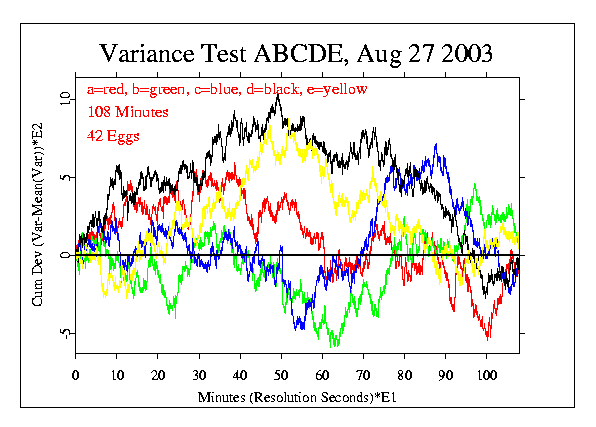|
A number of people suggested that the close approach of Mars late in
August 2003 would be a good time for a GCP prediction. On the 27th, our
neighbor would be the closest in 60,000 years. One suggestion, by Prof.
Adrian Patrut of Romania, had sufficient particularity
for a clear prediction, which he felt would have a medium likelihood.
It refers to the big Yang spiral, which will take place in Costinesti,
on the coast of the Black Sea (ca. 550 km away from Cluj) in the night
of August 27/28. The Yang spiral will last for 108 minutes, from UTC
23:00, August 27 to UTC 0:48, August 28, a.m. and will be attended by
10,000 members of MISA from Romania and other countries.
MISA (the Spiritual Movement of Integration in the Absolute) is the
largest yoga group in the world, having its main center in Bucharest and
additional centers in 20 Romanian cities. It is conceived as a
University; its members attend classes over every weekend, the overall
duration of studies being of 13 years. The number of active members in
Romania is of ca. 30,000, about half of them being college students or
college graduates.
MISA has branches in 15 countries in Europe, America, and Asia
(including USA and India).
The spiral effect will strongly affect the participants, who will enter
in an ASC, which will last for several hours beyond the end of the
meditation. A significant number of participants will not resist the
"energy" of the spiral and eventually will fall on the ground, where
they will remain for a long time period.
The Yang spiral is associated with the annual astrological hiatus on UTC
23:43 August and with the closest approach of Mars to the Earth
The formal prediction followed this prescription exactly, specifying the
standard analysis. The outcome, with 49 eggs on the 27th and 50 on
the 28th, is Chisquare is 6438.3 on 6480 df, and p = 0.641.
Thus the test statistic is slightly in the wrong direction, despite a
strong positive trend at the beginning of the period.

This event was also the first in an exploratory set of analyses
designed to meet certain critical objections. Prior to the formal
analysis, I gave the specifications to Prof. Dick Bierman of Amsterdam,
who then extracted the data and four "decoy" datasets from elsewhere in
the database. He provided me with the five datasets, which I was free
to process any way I wished, with the task of ranking the five from most
to least likely to be the real data. I did two kinds of analysis, and
in both cases gave the target data rank # 2 of 5. The two following
figures show the data from a Means-based analysis (similar to the
standard formal approach) and a Variance-based analysis.
The real data are the sequence plotted in yellow, set E.


|